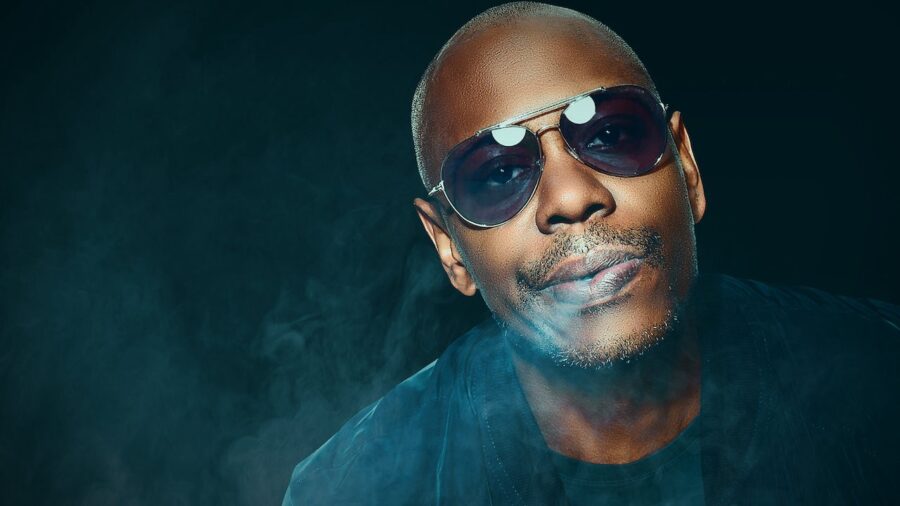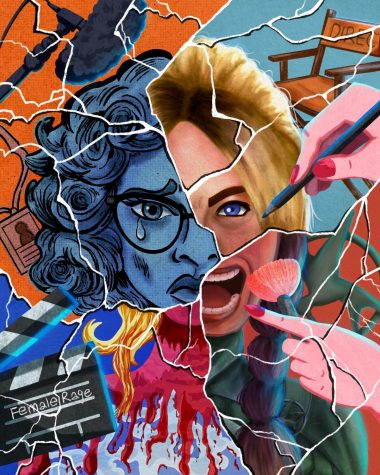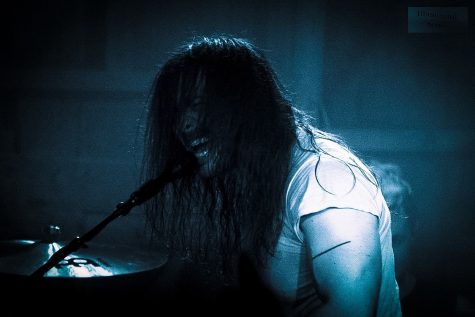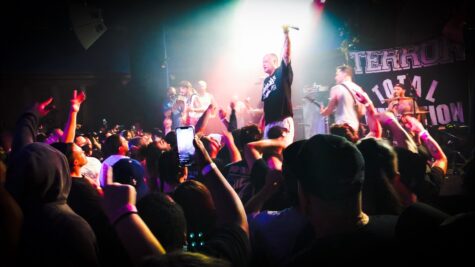Chappelle Refuses to Be Canceled
Cancel culture attempts to censor Dave Chappelle in his latest stand-up special “Sticks and Stones”–and fails miserably
When Netflix released the trailer of Dave Chappelle’s latest stand-up “Sticks and Stones,” I, as many fans of the comedian, were over-joyed by the rare appearance of the iconic comedian.
Shortly after, the backlash received from critics, inundated the internet to persuade and paint a socio-political narrative on the comedy special. After scrolling through my social media feed, I came across the Rotten Tomatoes controversy in which the site closed off the review section, of “Sticks and Stones” to just five critics and the results ended with a rare rating of zero percent. The low rating was up there with such cinematic flops such as the 1972 film “The Thing With Two Heads” and John Travolta’s failed biopic in the 2018 calamity “Gotti.” The “experts” all agreed that Chappelle’s Netflix special was pure rubbish.
After what appeared to be a momentary lapse of common sense — Rotten Tomatoes opened up the critique to fans and in another rare occurrence — the special was given a 99 percent rating by the public. Yes, the audience clapped back at the critics and at cancel culture’s drowned-out attempt at cultural censorship.
After watching it, I understood the controversy and why the “PC police” are in an uproar. It almost as if each joke acts as the salt pouring over the wounds of the politically correct and socially sensitive. Chappelle doesn’t hold back, and frankly, did we expect that he would? This is the same guy that showed Hollywood his fearlessness and lack of general f**ks by walking away from a 50 million dollar deal with Comedy Central over the “The Chappelle Show.”
In “Sticks and Stones,” the comedian starts with a trigger warning through way of reciting the lyrics of Prince’s “1999”.
“I was dreamin’ when I wrote this, forgive me if it goes astray/ But when I woke up this mornin’, could’ve sworn it was judgment day.” Chappelle then places special attention on the last line of the verse, “Tryin’ to run from my destruction, you know I didn’t even care.”
The poetically charming intro signifies Chappelle’s lack of concern by critics and naysayers. In true comedic fashion he proceeds to show the audience his authenticity at its finest through a slew of punches. Punches doled out in the form of punch-lines, about the forbidden and untouchable subjects of today’s culture.
Chappelle’s most cringe-worthy joke surrounded the controversy of the alleged victims of Michael Jackson, in which he says he doesn’t believe the accusers and proceeded to say that if the allegations are valid, at the end of the day “I mean, it’s Michael Jackson! I know more than half the people in this room have been molested in their lives, but it wasn’t no goddamn Michael Jackson, was it?” He went on to finish by saying, “I know it seems harsh, but somebody’s gotta teach these kids,” Chappelle continued. “No such thing as a free trip to Hawaii.”
The jokes definitely didn’t stop there. In an amusing and witty way, Chappelle used an analogy about the LGBTQ community — which he referred to as the “alphabet people”- riding in a car to describe the disparities among the various groups within the community. “I got friends who are Ls, who are Bs, and I got friends who are Gs. But the Ts hate my f**ing guts,” Chappelle said. He went on to say, “And I don’t blame ’em. It’s not their fault, it’s mine. I can’t stop telling jokes about these n****s. I don’t want to write these jokes, but I just can’t stop!”
There is a no holds bar approach towards his comedy in which he even makes fun of the audience and today’s cancel culture. And why shouldn’t he? We are living in a day and age in which we are walking the fine lines of censorship. It’s incredible to think that in the current culture there are groups out there that define what is funny by their political alignment or political correctness. Which serves as the antithesis of comedy.
Evidence shows that the rest of America doesn’t necessarily agree with the overbearing approach towards political correctness. In an NPR/PBS NewsHour/Marist poll, a majority of Americans say they are against the country becoming more and more politically correct. This indicates that the social-justice police are not as represented as it appears, they are just louder than the rest of us.
The self-righteous cancel culture uses fear-based approaches to shut down and silence anyone who has a differing opinion. Furthermore, anyone associated with such offensive or unpopular beliefs should be alienated and voted off the island like an outcast. Cancel culture sets out to ridicule differing opinions, ruin careers and livelihoods, and virtually destroy everything in its path. They are the ones dictating what is socially acceptable instead of us as a nation, reflecting on our own personal values and personal truths.
No one wants to be labeled as homophobic, racist, or sexist, so it puts individuals — and in this case — comedians in a bind. Restricting their creative methods to cater to individual groups in hopes of not offending differing opinions, comments, and jokes. Today’s cultural environment has made it close to impossible for comedians to push boundaries. But the dirty truth is, edgy comedy has always been successful, despite the controversy it breeds.
At the end of the day, Chappelle is a comedian with one job to do, and in “Sticks and Stones”, he made audiences laugh. Whether his jokes are in jest or his personal truth — that wasn’t the point.
Yes, some jokes are that uncomfortable within the stand-up special. Some jokes don’t land quite as well, possibly due to my own individual subjectivity — as I didn’t agree with all of his jokes — but I could appreciate it none the less. Comedy is subjective at the end of the day and will vary on what hits close to home for each individual. Comedians have always been known to say the things we can’t or won’t say and tease various concepts that prove to be taboo in our culture. Comedy acts as a remedy for many and has been known to make light of harsh and complicated situations. Something to soften the pain and heal us along the way.
Just because there is a group of “woke” individuals out there preaching social dos and don’ts of political correctness, do we really expect Chappelle to fall in line? Or the rest of America for that matter? But that is the beauty of the artistry of Chappelle’s comedy. In between laughs, scoffs, and gasps, he makes the audience think. He challenges the human psyche and reminds us that we are still deserving of our freedom of speech and expression. Chappelle’s fearlessness is admirable. His use of storytelling and relatability is what has made him highly successful. I respect his artistry, and I respect the fact that he tells the critics to go f**k themselves and to take it or leave it.
If you don’t like it — don’t watch it. If you don’t care for Chappelle, choose not to click the bait. It’s as easy as that.
The attempt to “cancel” anyone through public shaming and censorship tactics is a dangerous place for us to be in America today. We will never have real conversations and genuinely understand each other if we are too afraid to say what we think.
Imagine if today’s culture was thriving during the times of Richard Pryor or George Carlin? What if these comedians would have been too afraid to take risks and say the uncomfortable? One, we wouldn’t have the Chappelle that we know today, but the world of comedy would be dramatically different. We would have missed out on cultural insights, open dialogue about the social issues plaguing America, and, more importantly, we would have missed out on some great laughs.










